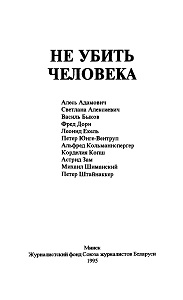Die “Neuordnung” Europas im 2. Weltkrieg und ihre Auswirkungen bis heute / “Новый Порядок” в Европе во время второй Мировой Войны и его последствия до сегодняшнего дня
The "New Order" in Europe during the Second World War and its Consequences to the Present Day
Author(s): Fred Dorn
Subject(s): WW II and following years (1940 - 1949), Politics of History/Memory
Published by: CEEOL Digital Reproductions / Collections
Keywords: WW II; memorization of WW II;
Summary/Abstract: The following introductory article presents in a revised form the results of a project to research our own history, which was organized in 1989 by the Office for Adult Education of the Evangelical Church of Hesse and Nassau (EKHN). The interest was focused on forced labor, on the fact that 10 million people were deported to Germany during the war and forced to work - and that this was not talked about long after the war. This was a project to search for clues both locally and in the countries to which those who had been forcibly deported had returned. After an introductory reflection on remembering as discovery, the focus turned to the situation in Europe - especially in the Soviet Union - after the German defeat in Stalingrad. In the article by Vasily Boikachev, edited by Leonid Jekel, it becomes clear what consequences this development had for the then 15-year-old boy from the Gomel region of the Belarusian Soviet Republic. The German war participant Alfred Kollmannsperger describes his experiences in this context.
Book: Erinnerungen gegen den Krieg / Не убить Человека
- Page Range: 64-87
- Page Count: 24
- Publication Year: 1995
- Language: German, Belarusian
- Content File-PDF

